Synology Disk Station DS-207+ Review
Synology Disk Station DS-207+
If your business needs a NAS then this solution from Synology would be a top choice.
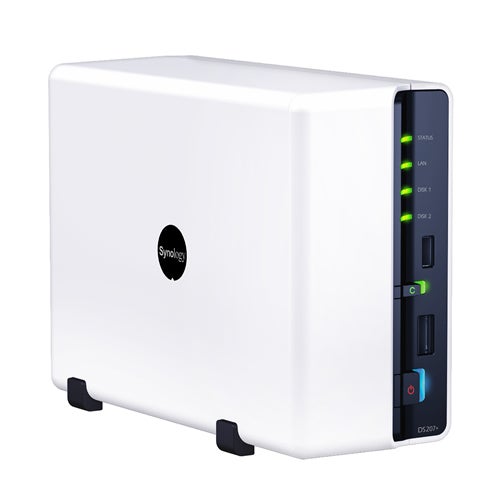
Verdict
Key Specifications
- Review Price: £204.44
It might be a compact little NAS appliance, but Synology’s new Disk Station DS-207+ certainly knows how to pack the features in, as this dual disk desktop box takes most of the features of its bigger Cube Station stable mates and delivers them at a competitive price.
The family comprises two models with the DS-207+ on review equipped with a 500MHz processor partnered by 128MB of memory. The lower-end DS-207 comes with a basic 266MHz FreeScale processor and 64MB of RAM and costs around £25 less. The feature list is very similar as both appliances offer Gigabit Ethernet plus a triplet of USB 2.0 ports for external storage or printer sharing but the DS-207+ also has an eSATA port at the front. 
The appliance can be supplied diskless enabling you to pick your own SATA drives and Synology’s supported device list is now quite lengthy. We opted for a pair of Western Digital Raptors and started by sliding the two halves of the chassis apart to access the interior. The drives are screwed into a metal carrier and linked with the supplied cables to the interface and power connectors on the motherboard. It’s a little fiddly as you need to make sure you get the SATA cables the correct way round but it was job done in less then fifteen minutes.
The bundled Synology Assistant locates the appliance on the network and with a fresh set of drives in place it’ll ask for the location of the firmware on the CD-ROM and proceed to set the system up for you. Using the well designed web interface you can then create a mirrored or striped volume or keep the drives separated as two non-RAID volumes. For share security you have a local user and group database or you can use NT domain or Active Directory authentication. Users are created from the Privileges menu and quotas used to limit the amount of space on the volume each one can consume. 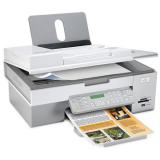
A pile of default folders are created during setup for each of the myriad features. With the Web Station enabled the appliance runs an Apache server for web services and also supports PHP and MySQL, so there’s plenty for fledgling web designers to play with here. The Photo Station 2 enables you to publish your own photos and videos on the web, add descriptions to each folder and individual pictures and it also lets users enter comments along with a contact email address when selecting a picture. Thumbnails are automatically created as pictures are downloaded and there’s a slideshow option as well. The default Video folder is provided for the multimedia service which allows direct sharing with media devices that support UPnP.
FTP services are impressive as you can decide what port number should be used, only allow secure connections over SSL/TLS and implement upload and download bandwidth restrictions. Anonymous FTP is also available, access can be permitted only to specific folders and you can even block the IP addresses of hosts that have failed to provide correct login credentials.
Naturally, you get an iTunes server but Synology goes that little bit further as along with password protection you can create internal smart playlists using a basic set of criteria such as the artist, album, genre or year. The Download Service allows you to run file copies independent of your PC from remote locations using BitTorrent, HTTP and FTP. These can be run from either the web interface or the bundled Download Redirector but note that only single files and not folders can be selected for each job.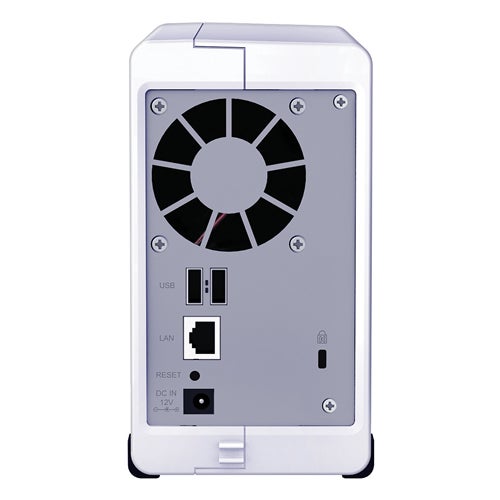
General performance is reasonably good as copying a 690MB video file from a Boston Supermicro 3.2GHz Pentium D workstation over Gigabit Ethernet returned read and write speeds of 18.2MB/sec and 10.1MB/sec. FTP speeds were better with the FileZilla utility reporting average read and write speeds of 33MB/sec and 17.7MB/sec for the same file. Be careful with the SSL/TLS setting as the same tests returned barely 2MB/sec in either direction with encrypted transmissions.
Synology has aimed the DS-207+ at business use and bundles a reasonable backup solution, which includes the Data Replicator II software for scheduled PC backup. Select your local files and a shared location on the appliance and after the first run it will synchronise local folders with those on the appliance. Add an external USB or eSATA drive and you can schedule copies of selected data from the appliance to them whilst the network backup option allows backups to be run to another Synology appliance.
We tested the latter using a Cube Station CS-407 and after we had enabled its Network backup service it popped up in the backup interface for the DS-207+ ready for selection. Once you’ve completed a backup the Network Restore feature comes into play where you can select a folder on the remote appliance and reinstate the data on your primary appliance.
”’Verdict”’
The Disk Station DS-207+ undoubtedly offers one of the best mixes of storage and multimedia features for the price. Performance is nothing to sniff at either and it also provides a useful range of backup tools as well.
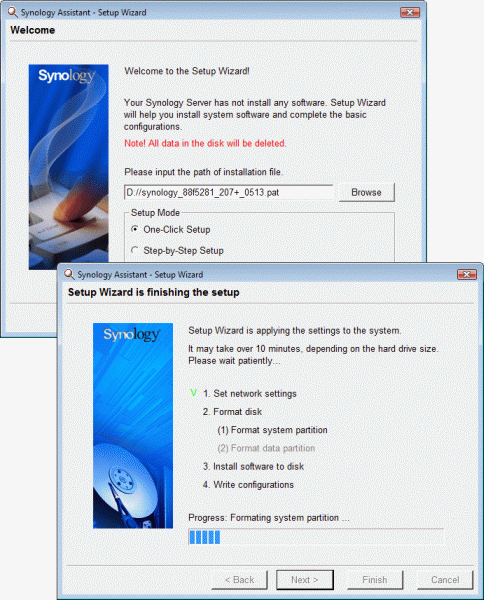
(centre)
”’With new disks installed the setup routine installs the firmware on them for you.
—-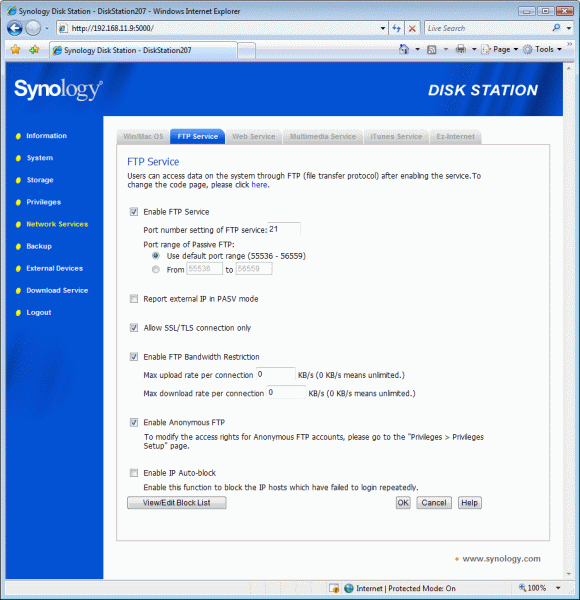
FTP services are well above average and also offer bandwidth controls and IP blocking.
—-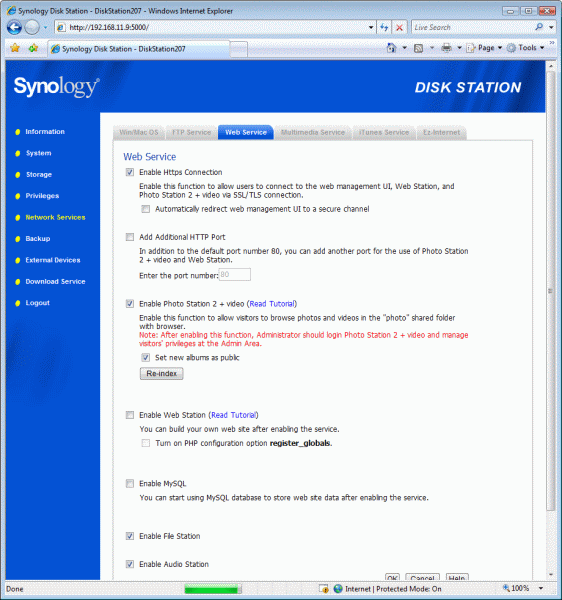
You won’t find web services like these for a lower price anywhere else.
—-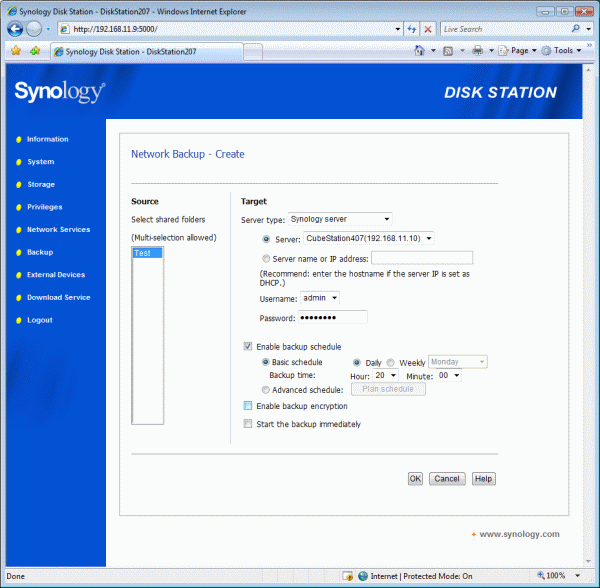
Backup options extend to scheduling tasks for securing data to another Synology appliance.
—-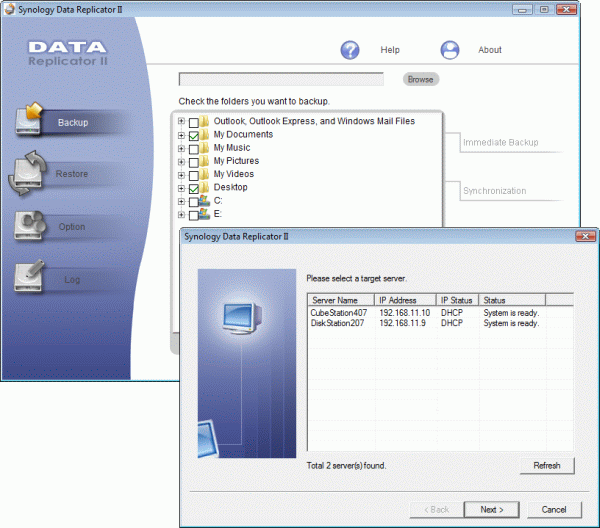
The bundled Data Replicator II looks after workstation backup.
—-
Trusted Score
Score in detail
-
Value 9
-
Features 9

